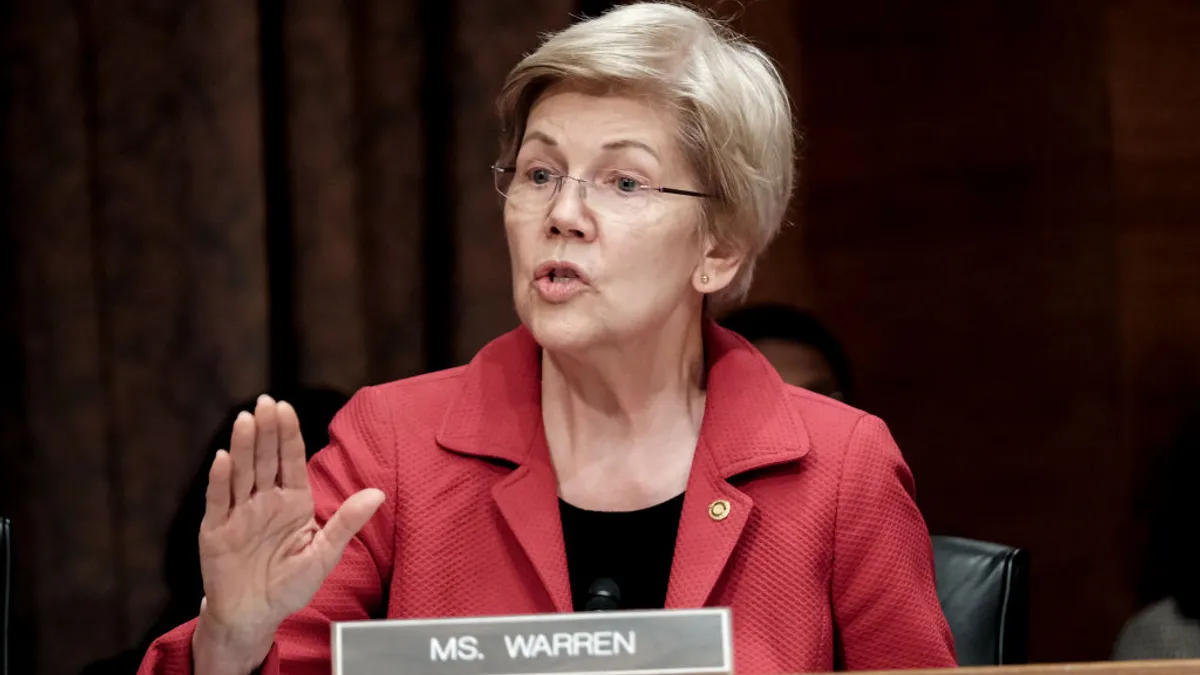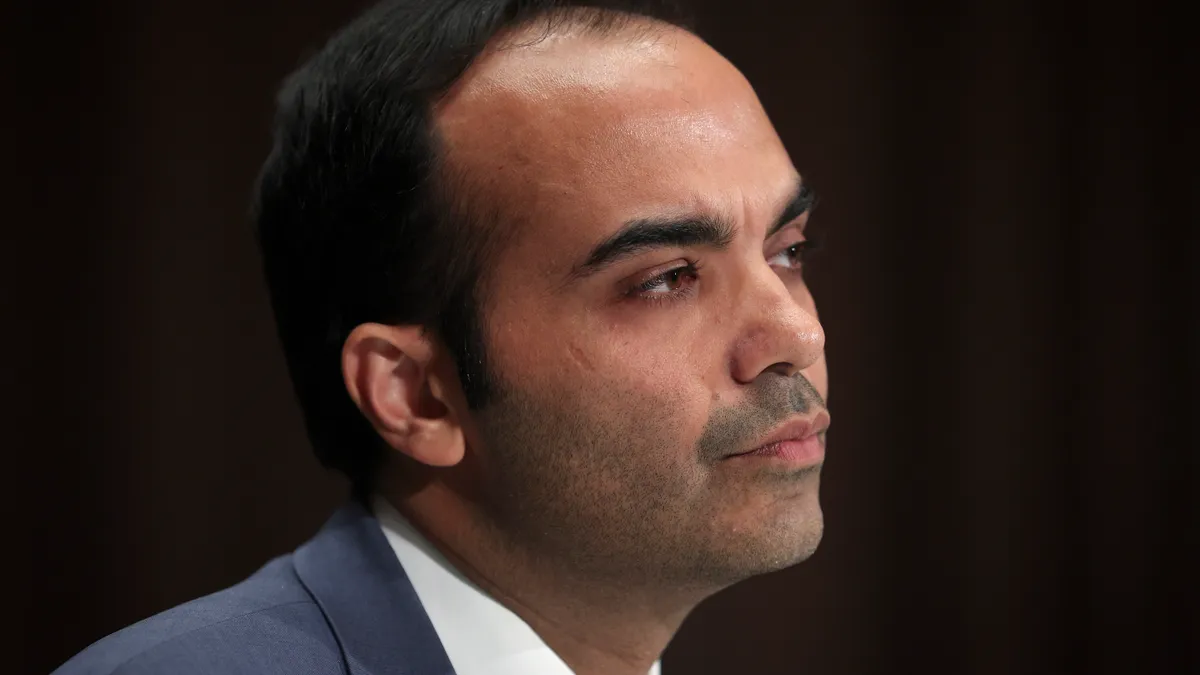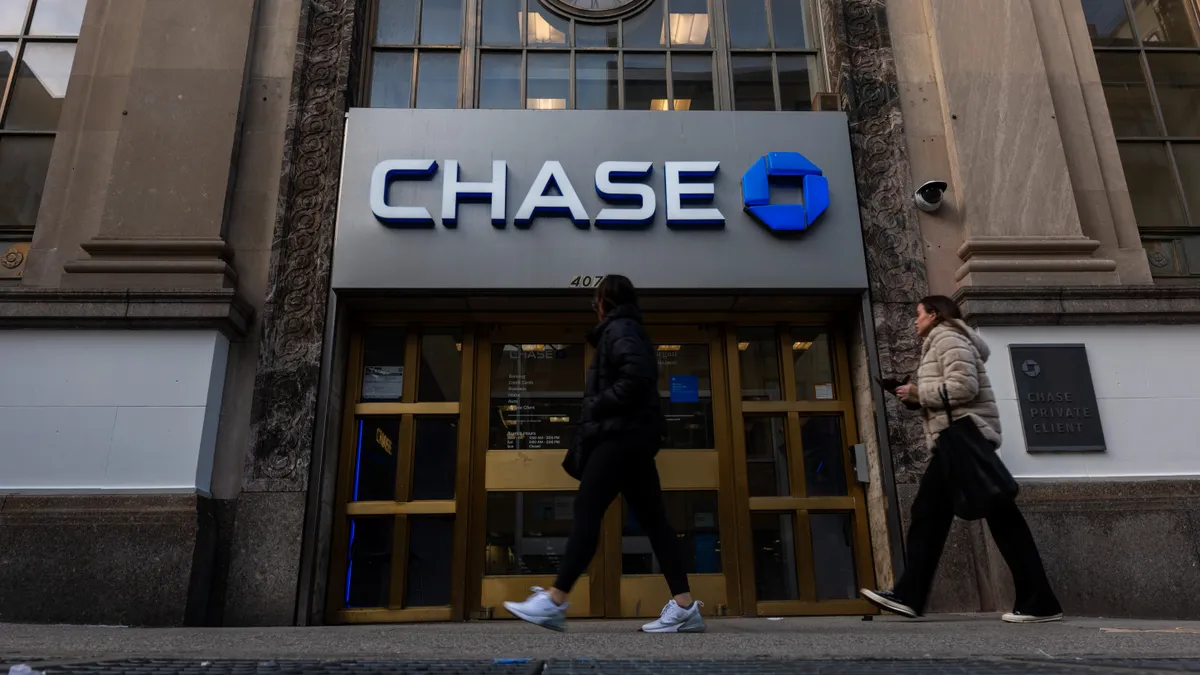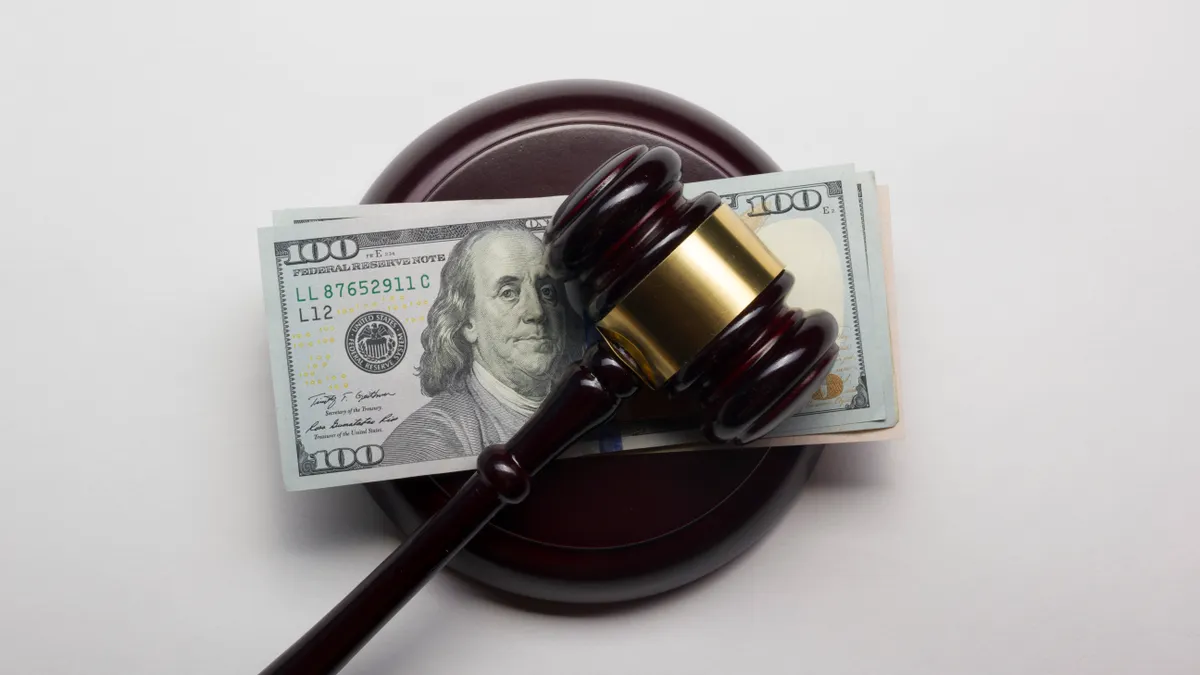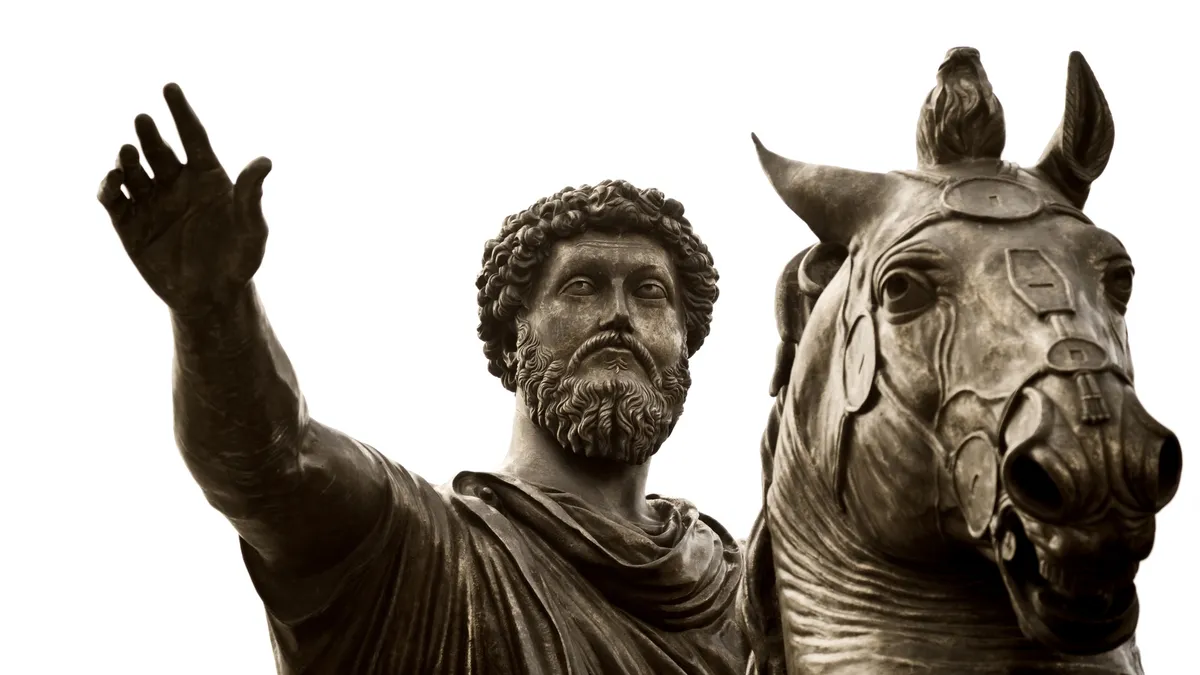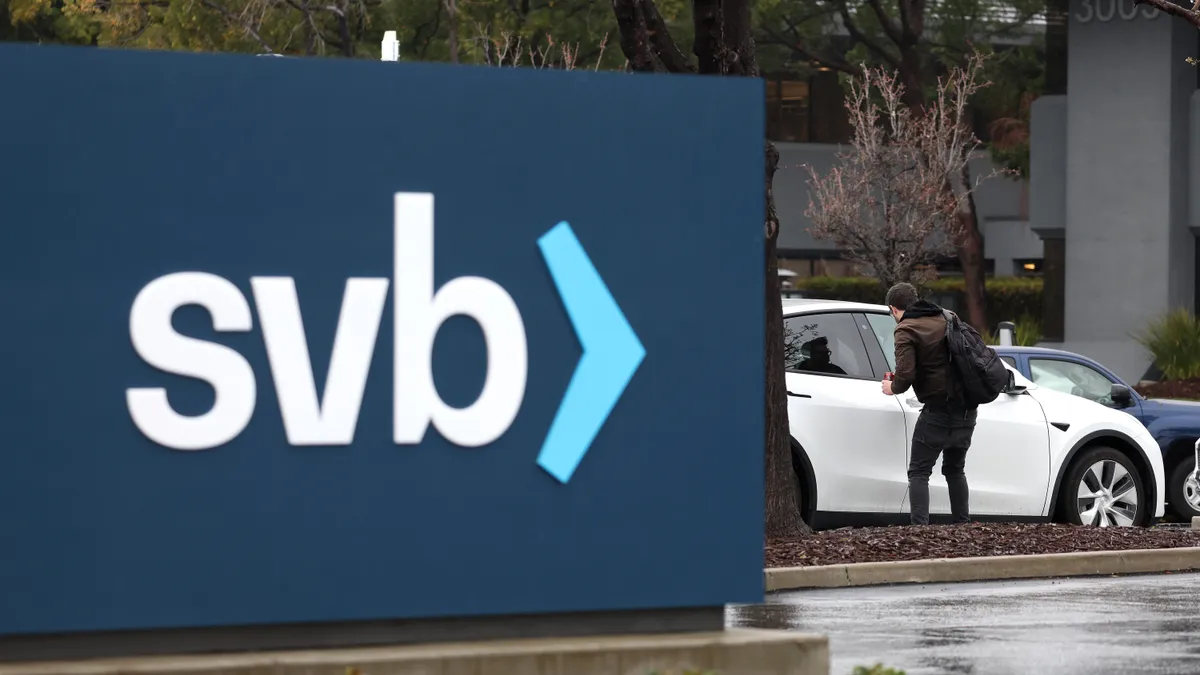Long before Rohit Chopra began riling up the payments industry and Republicans, the 39-year-old native of New Jersey was shaking up student government at Harvard University.
Lessons learned in those undergraduate years are serving him well now in his new role as head of the Consumer Financial Protection Bureau (CFPB).
Chopra was elected president of the Harvard Undergraduate Council (HUC) in 2002, beating his opponent in what the Harvard Crimson described then as a "hard-fought campaign" fueled by a record turnout.
The following year, the student newspaper quoted Chopra as saying he was "fighting" for the interests of his fellow students, with "no advantage to being a pushover." Indeed, Chopra and then-Harvard College Dean Harry R. Lewis would regularly yell at one another in heated arguments. Lewis, for his part, holds no ill will toward Chopra.
"There is a certain amount of built-in tension between college deans and student body presidents, but my relationship with Rohit was always honest, respectful, and professional," Lewis said in a recent email when asked about his past relationship with Chopra. "He was a mature leader even then."
For his part, Chopra told the Harvard Crimson that Lewis was a "worthy adversary."
Now, as director of the CFPB, Chopra remains as combative as ever. Just months after his confirmation in September, he has ordered two high-profile investigations into the payments industry, taking on tech titans Google, Apple and Amazon in a new examination of their payment products and separately demanding information from major buy-now, pay-later players, including PayPal, Affirm and Block's Afterpay. He's also reviewing policies related to earned wage access and increased financial institution data sharing.
Chopra is positioning himself to have significant influence in setting policy on a wide range of payments fronts as the financial services industry is caught up in a fast-changing environment. Industry executives and consumer advocate activists alike are tracking his statements closely to understand how his agency's moves may affect their interests.
At the CFPB from its start
Chopra first got a taste of the public spotlight when he helped then-Harvard Law School Professor Elizabeth Warren establish the CFPB in 2010.
Warren, now a U.S. senator and former Democratic presidential candidate, adopted Chopra as a protege in a battle to create the agency and the two remain close allies, according to media reports.
"Rohit hasn't wasted any time in getting to work," Warren, D-MA, said in a statement. "Under his leadership, the CFPB is returning to its core mission of protecting Americans from big banks and financial institutions."
Chopra joined the CFPB in 2010 after the Dodd-Frank Act created the agency. He was an assistant director and was named the agency’s student loan ombudsman the following year. In that role, he oversaw the agency’s crackdown on abusive debt collection practices by loan servicers.
Under Chopra's leadership, the CFPB uncovered widespread mistreatment of borrowers and found more than 7 million in default on their debt. In a 2013 speech to the Federal Reserve Bank of St. Louis, Chopra noted that outstanding student loan debt had doubled since 2007. He worked with then-President Barack Obama to establish the Student Aid Bill of Rights that stresses the right of Americans to an affordable college education.
After leaving government service in 2015, Chopra worked for a variety of nonprofits and political organizations between 2016 and 2018 on a part-time basis, including the Consumer Federation of America, the Roosevelt Institution, the Ford Foundation, the Colorado attorney general's office, and Hillary Clinton's presidential campaign, according to a 2018 financial disclosure form.
Chopra returned to government work in 2018, when he was appointed by former President Donald Trump as a member of the Federal Trade Commission (FTC), which is split between Democrats and Republicans.
While at the FTC, Chopra lobbied hard against the agency’s use of no-money, no-fault settlements in fraud cases and "led efforts to revitalize dormant authorities, such as those to protect the Made in USA label and to promote competition," according to Chopra's official CFPB biography.
Drawing pushback
In digging into the payments business practices of big tech companies, Chopra has asked Google, Apple, Facebook, Amazon, Square and PayPal for information on their operations. Not surprisingly, the CFPB is getting pushback from their trade group defenders in Washington, along with buy-now, pay-later services.
Critics of Chopra have noted the CFPB could have asked big tech and buy-now, pay-later businesses to provide the information the agency is seeking on a voluntary basis, but chose not to. That's an approach Joel Griffith, a research fellow at the conservative think tank The Heritage Foundation, called "heavy-handed."
The investigations "go after businesses for operations that aren't necessarily in violation of the law," Griffith said, stifling innovation "even if these investigations ultimately find nothing amiss."
Still, the Electronic Transactions Association (ETA), which represents the tech and BNPL companies, has said companies will cooperate with the CFPB's investigations. "He brings more passion to the position than the average regulator," Scott Talbott, an ETA spokesman, said in an interview, adding that his statement was meant as a compliment.
Chopra also tangled with banks, credit cards and other lenders over what he calls "junk fees" consumers are forced to pay.
According to the CFPB, businesses are "increasingly charging inflated and back-end fees" to consumers which "distorts our free market system by concealing the true price of products from the competitive process." Among the fees in the agency's crosshairs are the $14 billion credit card companies collect annually in late fees and the more than $15 billion in revenue banks collect from non-sufficient funds and overdrafts. Those estimates were as of 2019.
"He knows all the pressure that Senator Warren and Rich Cordray (the CFPB’s first director) were under back in the beginning days of the CFPB," said Ed Mierzwinski, senior director of the Federal Consumer Program at the U.S. Public Interest Research Group. "The CFPB is still under tremendous pressure from banking interests," he said in an interview.
Critics aren't holding back
His approach hasn't been well-received by some in Washington. Chopra has been in hot water with Republicans and their allies on Capitol Hill over what they consider his aggressive style and lack of respect for regulatory norms. And some of them are still smarting over the CFPB even being created. Not a single Republican in the Senate voted for confirmation of his nomination.
While Chopra's hard-charging style may have its detractors, he's getting their attention.
"He is interested in big ideas and taking novel approaches and doing things that other financial regulators have not really done in the past such as holding individuals accountable, and to demand fines that are not merely slaps on the wrist," Allen Denson, a partner with law firm Stroock & Stroock & Lavan in Washington, said in an interview. "In a pretty short time, he has already made his mark on the bureau and I think that that's only going to become more apparent, as it gets longer into his term," said Denson, who represents fintech and payment processors, among others.
Chopra has also stoked Republican hostility in his service on the board of the Federal Deposit Insurance Corp. (FDIC). Last year, he presented FDIC Chair Jelena McWilliams with a request for information (RFI) about bank mergers. After McWilliams told Chopra that such requests would need to be reviewed by the FDIC staff, Chopra issued the RFI through the CFPB, a move that outraged conservatives such as Sen. Pat Toomey, R-PA, the ranking member on the Senate Banking Committee. McWilliams is resigning this week.
"Notwithstanding the damage inflicted to his own reputation, Rohit Chopra’s hostile takeover of an independent government agency has done lasting damage to the longstanding idea that financial regulators should be insulated from partisan politics," Toomey said in a statement to Payments Dive. "The fact that the Biden administration stood idly by during Chopra’s lawless overreach speaks volumes about their disinterest in preserving institutional norms and it foreshadows dark days ahead for other multi-member financial regulatory bodies."
Weighing in when he's ready
Chopra didn't respond to repeated requests for comment left with the CFPB's Office of Public Affairs. He and the agency have also been reticent on some policy questions, like the implementation of a provision under the Dodd-Frank Act that could force financial institutions to share more data with upstart fintech rivals.
Nonetheless, the CFPB is clearly tracking key policy conversations and weighing in when needed. For instance, when the New Jersey legislature was advancing a bill that would have given more leeway to earned-wage access providers in that state, despite protests from consumer advocates, the CFPB shot off a letter making clear it's forging a federal position on the issue.
Chopra worked hard to become a savvy political operator at Harvard, said Matt Mahan, who served with Chopra on the Harvard Undergraduate Council and succeeded him as president. The aspiring policymaker honed skills then that are likely to serve him well as a government regulator, Mahan said during an interview.
"I did not come across anyone else in student government who was as interested in the policy nuances as Rohit," said Mahan, now a former tech executive-turned-city council member vying to become mayor of San Jose, Calif. "(He) was good at figuring out who all the different stakeholders were, understanding what they needed and wanted, and was generally quite adept at bringing those people together to find a viable path forward to get something done."









